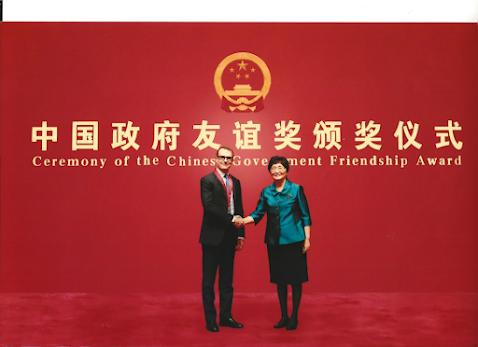Zhou Jinfeng: Urgent Protection of South African's Conophytum is Crucial; Global Biodiversity Fund can Help by Accepting Ecological Compensation from Fighting Wildlife Crimes
Wild conophytum plants thrive in harsh and fragile environments such as rocky outcrops, gravel plains, and desert regions. They have adapted to survive with minimal water and nutrients. However, the biodiversity of these arid and semi-arid regions, as well as their habitats, are increasingly threatened by human activities that disrupt the natural habitats of these plants. Moreover, the greatest threat to their survival comes from the illegal wildlife trade driven by the demand for these plants as ornamental species. This illegal international trade, fueled by the fascination for exotic collections brought about by industrial civilization, has led to overharvesting of wild populations, pushing them to the brink of extinction (all Conophytum species are now listed in Appendix III of the CITES convention). This is why we are prosecuting the largest trader of illegally sourced Conophytum plants in China, represented by "Flower Doctor" (CHEN Qing).

In return, the illicit actions of poachers who dig up wild Conophytum plants from their original habitats also cause environmental degradation in South Africa. This destruction sets off a chain reaction, negatively impacting the entire human habitat and ultimately undermining human well-being, including the well-being of our own people.
Firstly, the extinction of Conophytum plants in South Africa contributes to the deterioration of local semi-desert ecosystems, posing a severe threat to global ecosystems and the community for all life. Drought, species migration, and climate change all have global implications. Conophytum plants play a crucial role in the ecological balance of South Africa, and their extinction would lead to the collapse of local ecosystems, thereby exerting negative effects on global ecosystems.
Secondly, the destruction of global ecosystems will lead to an increase in extreme climatic events. We are familiar with the "butterfly effect," where small initial changes can result in vastly different outcomes. The flapping of a butterfly's wings in Brazil could potentially trigger a tornado elsewhere. Similarly, the deterioration and desertification of South African ecosystems may indirectly generate chain reactions, causing significant losses to the lives and properties of people thousands of kilometers away. The degradation of an ecological environment in one country, such as South Africa, can have far-reaching consequences for global ecosystems.
The extinction of a species and the destruction of its habitat have profound impacts on the natural environment and inflict significant harm on humanity as a whole. As emphasized by our national leaders at the United Nations Biodiversity Conference: human destinies are closely intertwined, and the global community forms a shared community for all life. From a global and systemic perspective, the endangered status and extinction of South African Conophytum in their natural habitats will eventually impact the global ecosystem. Therefore, the restoration of the original habitat of South African wild Conophytum is crucial.
In conclusion, the environmental degradation in South Africa triggers a chain reaction, negatively impacting global ecosystems and undermining human well-being. This chain reaction is driven by factors such as species extinction, the collapse of local ecosystems, and an increase in extreme climatic phenomena. Protecting South Africa's ecosystems and restoring the habitats of Conophytum plants is part of our mission to build an Earth for All, which is of vital importance in maintaining global ecological balance and securing the future of humanity.
(Authored by Dr. Zhou Jinfeng, compiled by CBCGDF staff based on Dr. Zhou Jinfeng's speech at the "Building a Shared Community for All Life" Expert Symposium on July 4, 2023. The text is for reference only. Comments and feedback are welcome.)
[relavant report]
The 1st Environmental Lawsuit to Build a Shared Community for All Life: Litigation against Illegal Conophytum Trader "Dr Flower" to Heard on July 11, 2023
http://www.cbcgdf.org/English/NewsShow/5001/24107.html
Compiled by Chaubi
Editor: Irene
Contact: v10@cbcgdf.org; +8617319454776

Contribution
Do you know? CBCGDF is a non-profit organization. We rely on crowd-funding and donations. You have the opportunity to help us to advance biodiversity conservation. Donate TODAY to power up the movement to make it a better world for all life.



Comments
Post a Comment